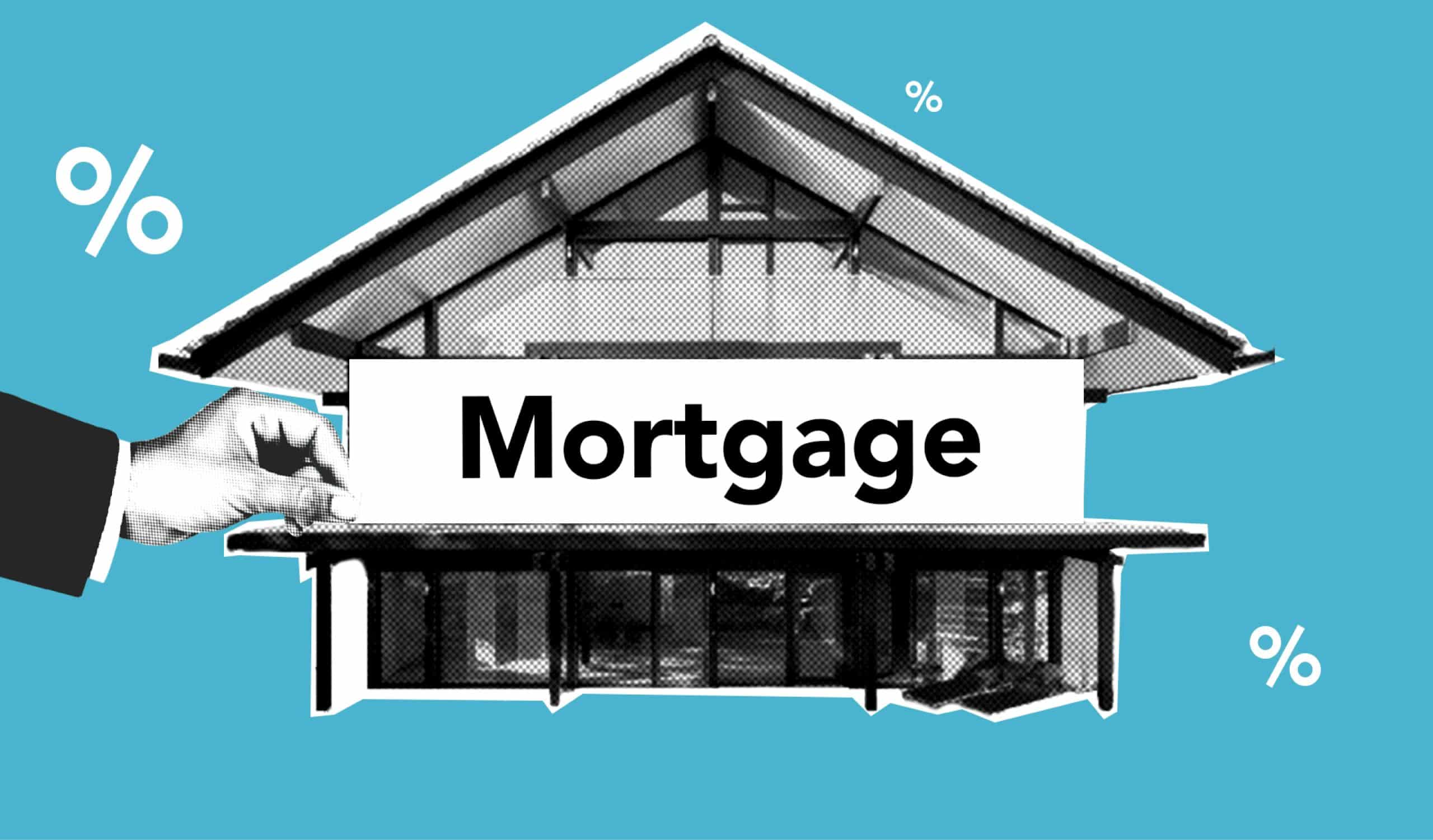How Real Estate Impacts Your Credit Score: Myths vs. Facts
Your credit score is one of the most important financial metrics that lenders use to assess your ability to repay loans. It influences everything from the interest rate you’ll pay on a mortgage to your ability to get approved for credit cards, car loans, and personal loans. While most people know that their credit score can significantly impact their financial decisions, few understand the intricate relationship between real estate transactions and credit scores. There are many myths surrounding how real estate can influence your credit score. Let’s see how real estate impacts your credit score.
In this blog, we will explore the facts and debunk common myths about how real estate transactions can affect your credit score, as well as how to manage it effectively when buying or selling a property.

What is a Credit Score?
Before diving into how real estate impacts your credit score, it’s important to understand what a credit score is and how it works. Your credit score is a numerical representation of your creditworthiness. It’s a number ranging from 300 to 850, with higher scores indicating better credit health. Credit scores are calculated based on your credit history, including factors like:
Payment history (35%): How consistently you’ve made payments on time.
Credit utilization (30%): The ratio of your credit card balances to your credit limits.
Length of credit history (15%): How long you’ve had credit accounts.
Types of credit used (10%): A mix of credit types (credit cards, mortgages, etc.).
Recent inquiries (10%): The number of recent credit checks or inquiries made.
Now that we have a basic understanding of what a credit score is, let’s dive into how real estate transactions can impact it.
Myth #1: Buying a Home Will Immediately Lower Your Credit Score
Fact:
One of the most common myths is that buying a home will automatically and significantly lower your credit score. While it’s true that your credit score may experience a slight dip in the short term, it’s typically temporary and not as drastic as many believe.
When you apply for a mortgage, the lender will perform a hard inquiry into your credit report. A hard inquiry happens when a lender checks your credit score as part of a loan application. This can cause a small decrease in your score, often by just a few points.
However, this dip is usually short-lived. If you make timely payments on your mortgage, the long-term effect on your credit score will generally be positive. In fact, consistent mortgage payments will eventually improve your score over time, especially if you maintain a good credit utilization ratio and avoid missing any payments.
The key takeaway here is that buying a home doesn’t immediately lower your score in any meaningful way, and the benefits of homeownership outweigh any short-term dip in score.
Myth #2: Paying Off Your Mortgage Early Will Boost Your Credit Score
Fact:
While it may seem logical that paying off your mortgage early would improve your credit score, this is not always the case. It’s true that paying off a mortgage demonstrates that you’re financially responsible, but in terms of credit scoring, the effect may not be as significant as you think.
Mortgage lenders report the status of your mortgage to the credit bureaus, and paying off your mortgage shows that you’ve fulfilled your debt obligations. However, closing an installment loan like a mortgage early may lower your score in the short term due to changes in your credit mix.
Credit scoring models generally reward a healthy mix of different types of credit, such as credit cards, auto loans, and mortgages. When you pay off your mortgage early and close the loan, you could lose a portion of your credit mix, which might negatively impact your credit score.
If your mortgage was your only installment loan, you may see a drop in your score simply due to the fact that you now only have revolving credit (like credit cards) to report.
Myth #3: Renting Doesn’t Affect Your Credit Score
Fact:
Another common misconception is that renting a home has no impact on your credit score. While it’s true that rent payments aren’t typically reported to the credit bureaus, there are ways that renting can still influence your score, especially if you have a history of late payments or nonpayment.
If you fail to pay rent, your landlord may report the missed payments to the credit bureaus, which can lead to negative marks on your credit report. Additionally, if you go through an eviction process, that too can harm your credit score.
Some rental payment companies and property managers now offer services that report your rent payments to the credit bureaus. If you’ve consistently paid rent on time, these reports can help boost your credit score by showing a positive payment history. If you’re renting and want to ensure your payments are contributing positively to your credit score, check with your landlord or a third-party service that reports rent payments to the credit bureaus.
Myth #4: A Higher Down Payment Means a Better Credit Score
Fact:
While a higher down payment can be beneficial when purchasing a home, especially in terms of reducing your monthly mortgage payment—it does not directly impact your credit score. The size of your down payment is a factor in the loan application process, but it doesn’t affect the credit score calculation.
Lenders may look favorably upon a larger down payment when evaluating your mortgage application, as it indicates that you are financially responsible and able to contribute more upfront. However, your credit score is still the primary factor that lenders use to assess your ability to repay the loan.
In short, a larger down payment can help you qualify for a better loan or a lower interest rate, but it won’t directly affect your credit score.
Myth #5: A Foreclosure Will Ruin Your Credit Score for a Decade
Fact:
A foreclosure will indeed have a significant negative impact on your credit score, but the idea that it will “ruin” your credit for an entire decade is somewhat of an exaggeration. While a foreclosure can cause your credit score to drop by 100 points or more, the actual negative effect may lessen over time if you take steps to rebuild your credit.
A foreclosure remains on your credit report for seven years, not ten. During that period, it will likely be difficult to get approved for new credit or loans, but if you focus on making timely payments, keeping your credit utilization low, and gradually rebuilding your credit, the impact of the foreclosure will diminish as time passes.
If you’re dealing with a foreclosure, it’s important to work with a credit counselor or financial advisor to develop a strategy for improving your credit score.
Myth #6: Your Credit Score Only Matters When You’re Buying a Home
Fact:
While it’s true that your credit score plays a major role in the home-buying process, it’s also a critical factor in other areas of your life. From securing personal loans to qualifying for credit cards, car loans, and even renting an apartment, your credit score is often a key consideration.
Even after you buy a home, maintaining a good credit score is important. A higher credit score can help you qualify for better mortgage refinancing rates in the future, should you decide to refinance your loan. It can also be useful if you need to take out a personal loan or apply for a new credit card.
Your credit score is a financial asset that influences many aspects of your financial life, not just your ability to secure a home loan.
Myth #7: Selling Your Home Has No Impact on Your Credit Score
Fact:
Selling your home doesn’t directly impact your credit score, but there are indirect ways that it could. For example, if you sell your home and use the proceeds to pay off outstanding debts, your credit score could improve due to the reduction in your debt-to-income ratio and credit utilization.
On the other hand, if you sell your home and continue to struggle with other financial obligations or if the sale is part of a foreclosure process, your credit could be negatively impacted. The key takeaway here is that selling a home won’t affect your credit score in and of itself, but your financial decisions related to the sale can influence your overall credit health.
Conclusion: Managing Your Credit Score Through Real Estate Transactions
Real estate transactions can influence your credit score in various ways, but understanding the facts versus the myths can help you make informed decisions. Whether you’re buying, selling, renting, or paying off your mortgage, it’s essential to maintain a healthy credit score for financial stability.
Here are some key takeaways:
Buy a home: It may cause a slight dip in your credit score, but it can improve your score in the long run if you manage payments responsibly.
Pay off a mortgage early: It won’t necessarily boost your credit score and might reduce your credit mix.
Renting: If your rent payments are reported to the credit bureaus, they can help improve your credit score.
Foreclosure: While it has a significant negative impact, the damage is not permanent and will lessen over time if you work on rebuilding your credit.
Selling a home: Doesn’t directly impact your credit score, but how you manage the proceeds, and any remaining debts can have an effect.

In the end, whether you’re dealing with buying, selling, or refinancing real estate, staying on top of your credit health is key. By avoiding common myths and taking proactive steps to manage your credit, you can ensure that your real estate decisions work in your favor.


